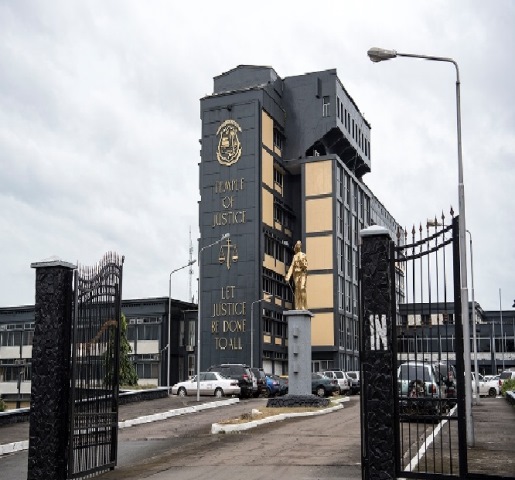The 2024 World Justice Project (WJP) Rule of Law Index reveals a continued global decline in the rule of law for the seventh consecutive year. The findings indicate that 57% of the surveyed countries experienced a deterioration in their rule of law scores. This trend is a part of a larger pattern identified since 2016, where an alarming 77% of countries have seen similar declines, primarily spurred by increasing authoritarianism. Within this backdrop, Liberia stands out as a notable exception, having improved its overall rule of law score by 1% from the previous year, moving to a rank of 109th out of 142 countries globally and 17th among 34 countries in Sub-Saharan Africa.
In the region, Liberia is overshadowed by the top performers, which include Rwanda, ranked 40th globally, followed by Namibia and Mauritius. Conversely, countries like Cameroon, Sudan, and the Democratic Republic of Congo have significantly low scores, indicating severe issues in the rule of law. The year saw a worrying trend in Sub-Saharan Africa, with 21 out of 34 countries experiencing a decline in rule of law scores, many of which had already shown similar downturns in the previous year, highlighting a persistent regional problem in governance and legal frameworks.
The global erosion of the rule of law, particularly between 2016 and 2024, has been driven significantly by challenges to fundamental rights, which have been undermined in 81% of the countries studied. Moreover, constraints on government powers have weakened in 77% of the surveyed nations. The findings suggest that institutions such as legislatures and civil society groups are increasingly hampered in their ability to provide necessary checks on executive power. However, Liberia did not conform to these broader trends in the last year, as it maintained stable scores regarding both fundamental rights and constraints on government powers.
Interestingly, amidst this overall decline, there was a noticeable improvement in the fight against corruption globally, with 59% of countries recording enhancements in their Absence of Corruption scores. Liberia benefited from this trend, exhibiting progress in its corruption metrics. WJP Co-founder William H. Neukom emphasized the importance of recognizing these achievements, noting that while rule of law challenges are formidable, there remains significant global effort to combat corruption and enhance judicial systems.
The global ranking based on the 2024 WJP Rule of Law Index places Denmark at the top, with other Nordic countries like Norway, Finland, and Sweden following closely behind. At the opposite end of the spectrum, Venezuela, Cambodia, and Afghanistan rank among the lowest, illustrating stark discrepancies in governance and rule of law worldwide. In this context, Liberia’s position, 109th overall and with varying rankings in specific rule of law categories—such as 80th for Constraints on Government Powers and 124th for Absence of Corruption—reveals both strengths and weaknesses within its judicial and governmental structures.
In summary, while the 2024 WJP Rule of Law Index highlights a troubling trend of declining rule of law in many countries, Liberia emerges as a beacon of resilience through its incremental gains in certain aspects. The report reinforces the notion that progress in anti-corruption efforts is essential amidst a more extensive global struggle for justice and governance. As nations confront the challenges posed by authoritarianism and uphold fundamental rights, there is a pressing need for continuous global and local efforts to promote and expand rule of law achievements.














